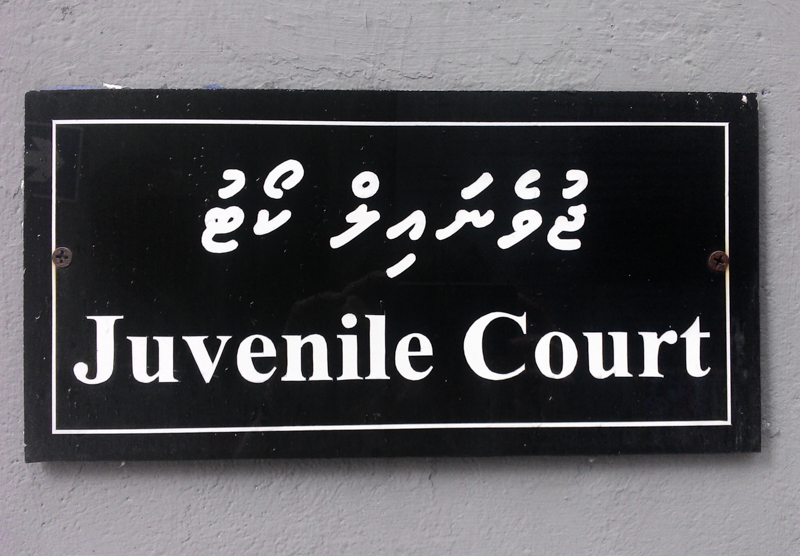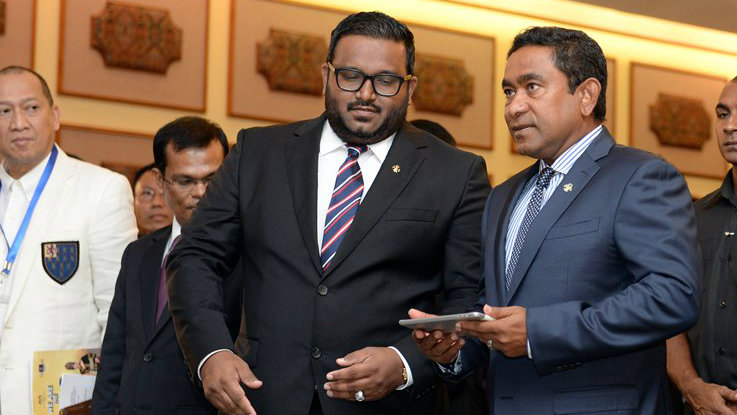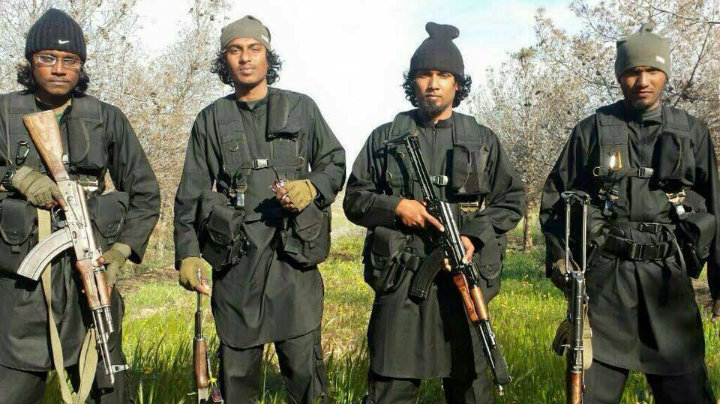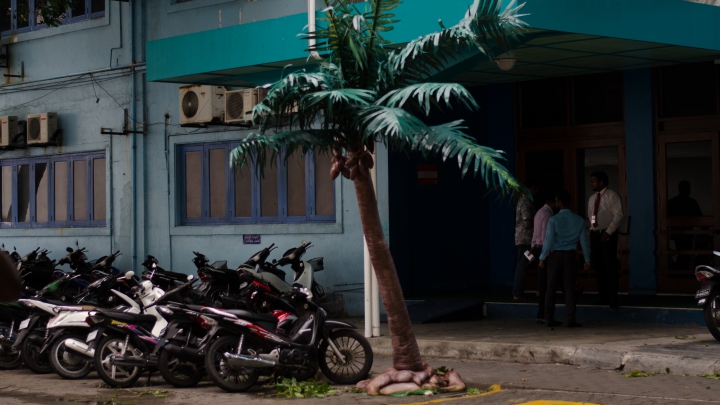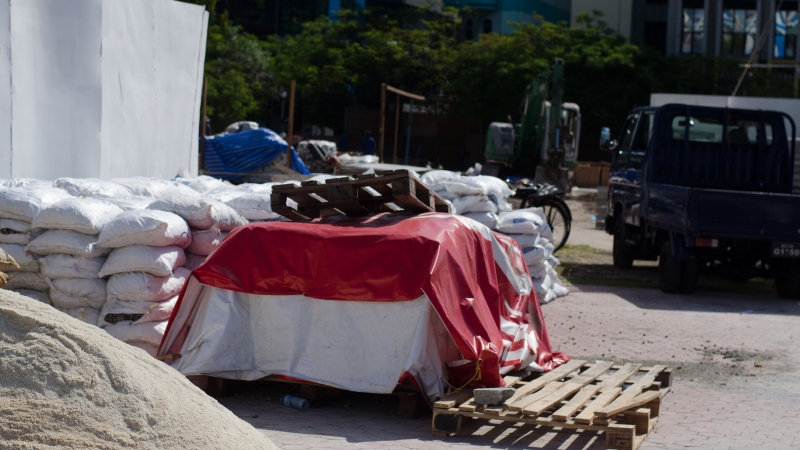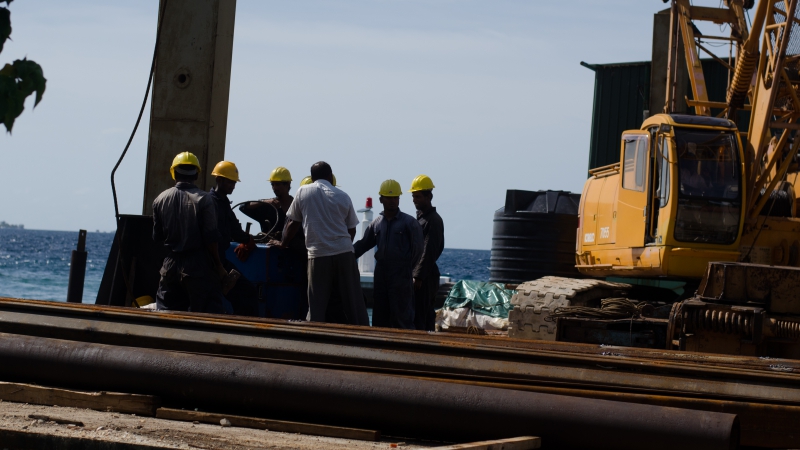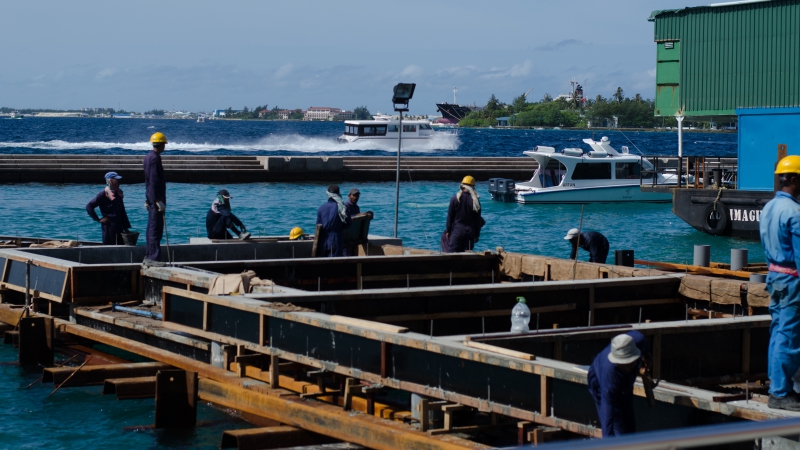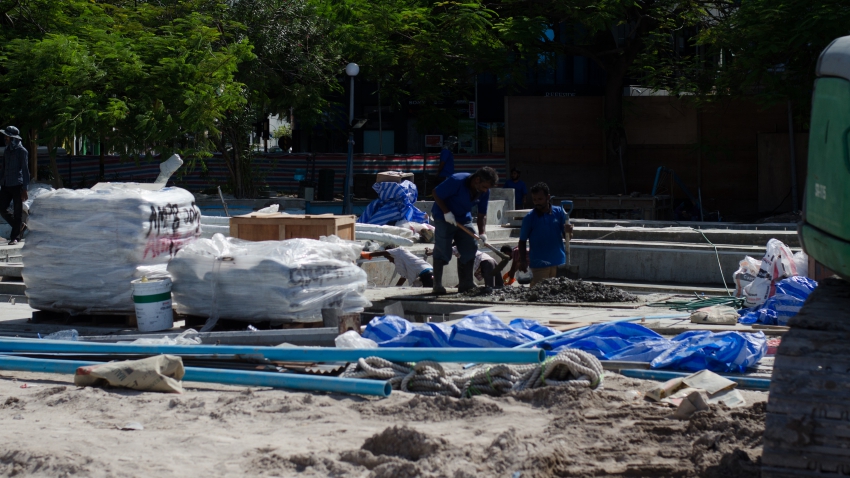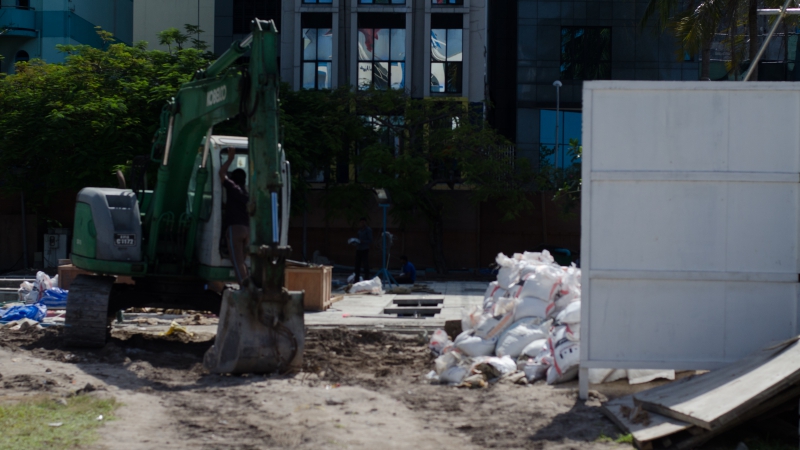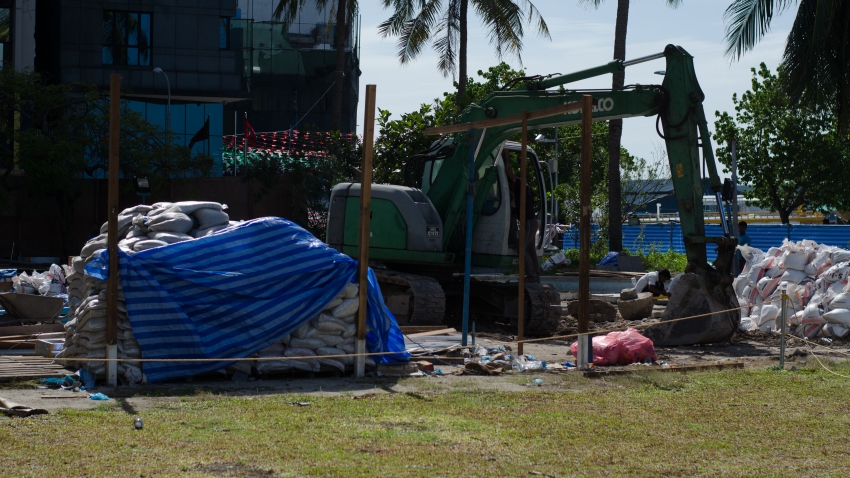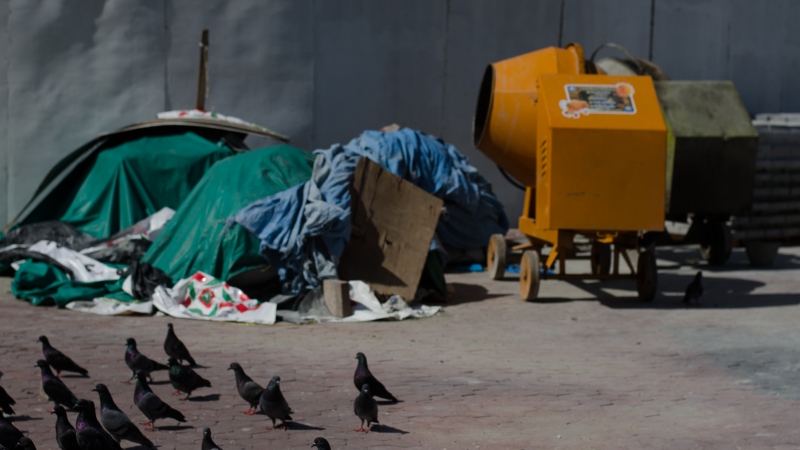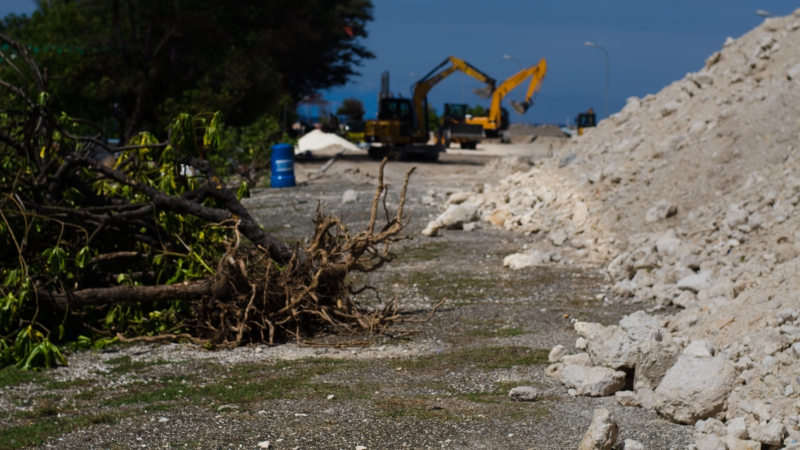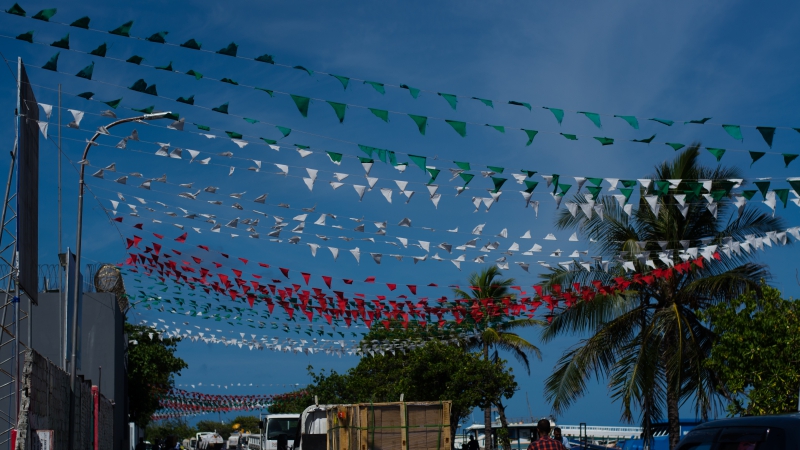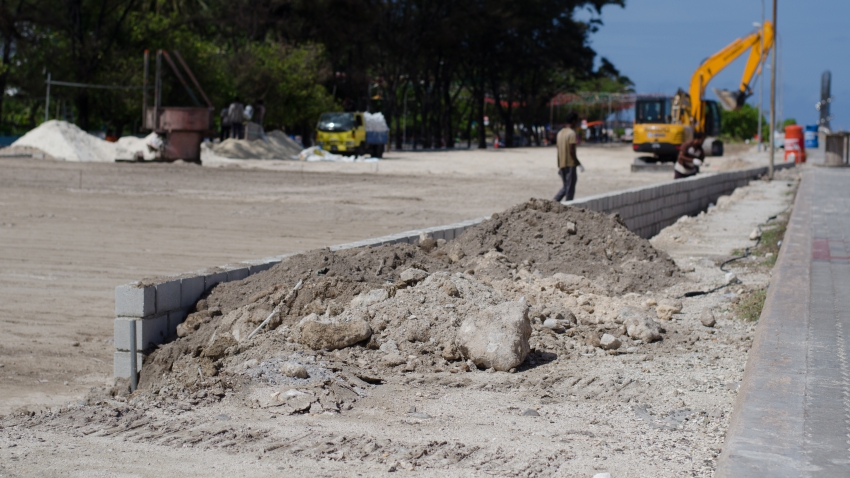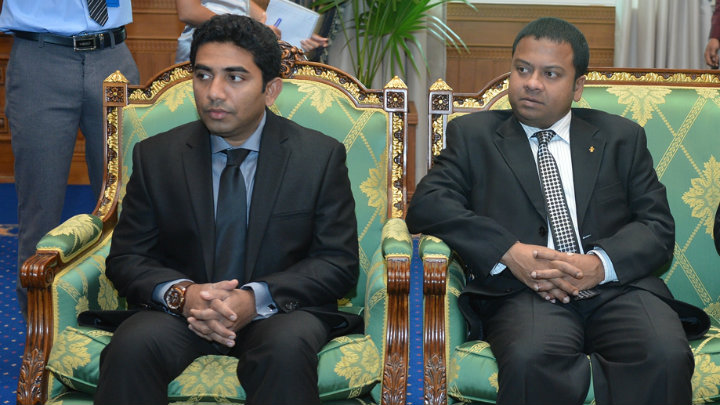This op-ed is by Mohamed Hameed, the former head of the police intelligence department.
The first reports of Maldivians joining in and dying in the civil war in Syria came in during mid-2014. Since then, more than a hundred Maldivians, including women and children, are reported to have left the Maldives to fight in battle in the ongoing war in Syria and Iraq, and to live under the banner of the Islamic State. Dozens more have reportedly died. The latest are three young men from Malé’s Kuda Henveiru ward.
The Maldives needs legal measures to prevent the death and the steady outflow of Maldivians, but will the provisions in the new anti-terror bill, drafted by the Attorney General’s Office and submitted to parliament on July 6, act as a deterrent?
The bill metes out a jail term of between 17- 20 years for those who join in a foreign war or leave the Maldives with the intent of joining a foreign war. A jail term of 10 to 15 years is proposed for those who attempt to leave the Maldives with the same intent.
According to media reports, at least two groups of seven Maldivians have been caught in Sri Lanka and in Malaysia while attempting to board flights to Turkey. Under the new law, they may be jailed for up to 20 years.
Harsh penalties can act as a deterrent. But they are not enough.
The Maldives has tough laws on gang violence and knife crime. But the harsh penalties have done little to curb the fatal stabbings. In 2010, in response to a surge in murders of young men, the parliament passed a law banning threats and possession of dangerous weapons. The law metes out a jail term between six months and seven years for threats and up to three years in jail for possession of weapons. However, 12 people were killed in the ensuing two years.
In early 2014, President Abdulla Yameen’s administration removed a six-decade moratorium on the death penalty. In August of the same year, after three young men were stabbed to death in the space of a month, the parliament moved to restrict the right to remain silent and access to a lawyer for suspects. Since the amendments passed in December last year, six people have been killed, including three migrant workers.
Robust laws are never enough.
There have been multiple instances where law enforcement, especially investigative agencies have failed in dealing with cases of serious crime. This has affected public safety, and lead to questions over the force’s competence in protecting the public. The police service is perceived to operate without clear policies and strategies to tackle crime in the Maldives.
The model which the police service uses in order to achieve policing objectives is not known to the public or its officers. Counter-terrorism policing is a more complex subject where success relies heavily on how well regular police work is carried out in partnership with the communities the police service serves.
The criminalization of participation in foreign wars or attempting to do so is a minor aspect of the new anti-terrorism bill. The bill is mainly concerned with defining some 14 other offences as terrorism, including murder, disappearances, kidnappings, damaging property, hijacking vehicles, endangering public health or security, damaging public infrastructure and suspending public services. Punishments range from 20-25 years prison terms for perpetrators, and from 17-20 years for those caught planning a terror act.
Is the Maldives at threat from the above? Since the Sultan Park bomb incident of 2007, how many incidents of terror has the Maldives seen?
These questions are very important as the anti-terrorism bill curtails a host of civil liberties. The home minister is authorized to seek a monitoring and control or monicon order from the High Court to conduct surveillance of suspects, including tagging, restricting place of residence, restricting freedom of movement, intercepting communication and monitoring bank accounts. A monicon order can be issued without the knowledge of the suspect. The home minister only needs to provide the judge with a police intelligence report.
The monicon measures introduced in this bill appears to be modeled on the United Kingdom’s Terrorism Prevention and Investigation Measures (TPIMs) Act, passed in 2011. The law was passed in response to increasing risks of terrorism. The July 7 bombing of 2005 killed 52 and injured more than 700. Further, a significant majority of the UK’s migrant population are from Pakistan, a country considered the “epicenter of terrorism.” Do we face the same threats to justify the granting extensive powers to the law enforcement agencies and the curtailing of civil liberties?
It is also important to note that the prevention and investigative measures outlined in the UK Act is for those suspects who cannot be either prosecuted or deported by the UK authorities. In the case of this bill, monicon measures can be taken against suspects who are prosecuted and under trial, but cannot be held in custody.
While a monicon order can be sought on police intelligence information, it is important to note that there is no special law on the gathering and use of intelligence information. In the absence of such a legal or regulatory framework, there will always be questions over the credibility of such information. The provision of using intelligence in the anti-terrorism bill underscores the immediate importance of a framework on compiling intelligence reports. This framework must be agreed on by the law enforcement agencies, the prosecution authority and judiciary. Investigative agencies must be aware that intelligence information does not always count as evidence. Instead, it is good investigative practices that lead to successful convictions. A heavy dependence and high degree of admissibility for intelligence reports, as provided for in this bill, could lead to ineffective investigations.
It is true that a single act of terror can cripple the Maldives and its economy. The 1990 Anti-Terrorism Act is outdated and insufficient in dealing with the nature of modern crime. But is the proposed bill compatible with the risks Maldivians face?
The Maldivian government is yet to acknowledge how wide spread extremist ideologies are in the country. After months of pretending to have no knowledge of the number of Maldivians leaving for Syria, the home minister in December last year told the parliament there were some 7 Maldivians fighting abroad. The next month, the commissioner of police said the number was more than 50. Media reports since then indicate Maldivians are continuing to leave the country. The police have now begun questioning passengers on board flights to Turkey, even as reports indicated Maldivians were now seeking alternative routes to fly to Syria.
The risk of terrorism must not be underestimated. It is likely that there are some Maldivians with the motivation, the intent and the capabilities of carrying out acts of terror. But the most prevalent threats in the Maldives at present appear to be the recruitment of Maldivians for wars abroad and the spread of extremist ideologies. Although the bill does punish the dissemination of materials published by terrorist organizations, this is not enough to counter radical and extremist ideologies that give rise to terrorism and allow recruitment.
Comprehensive reforms and measures such as public awareness, early intervention and rehabilitation programmes to combat extremism must be put in place, along with or before the passage of this bill. There has to be a comprehensive picture on the problem of religious extremism and a cross-government strategy to tackle it. As a very first step, the government must publicly acknowledge the spread of extremist religious ideologies. Our elected officials must explain to the us the level and nature of threats we are facing and justify why we must allow the state to take away so many of our civil liberties.
All comment pieces are the sole view of the author and do not reflect the editorial policy of Minivan News. If you would like to write an opinion piece, please send proposals to [email protected]
Likes (6)Dislikes
(6)Dislikes (0)
(0) 